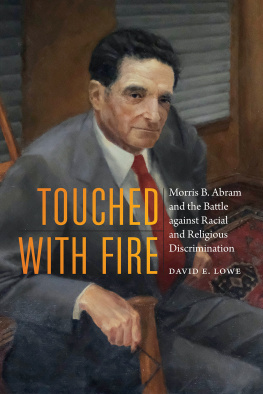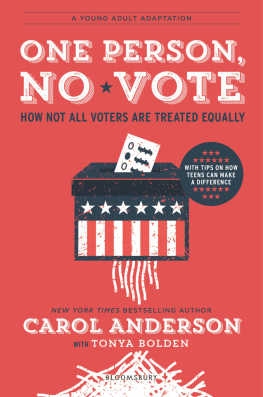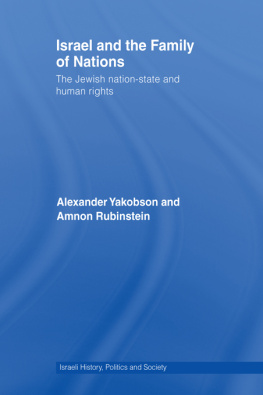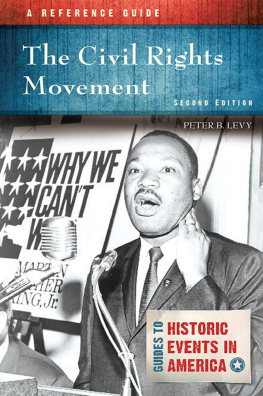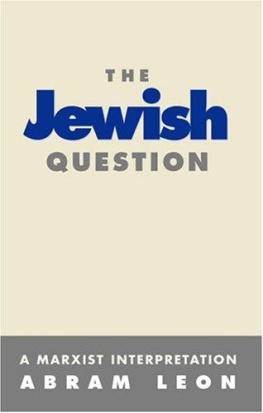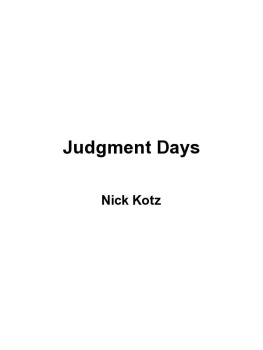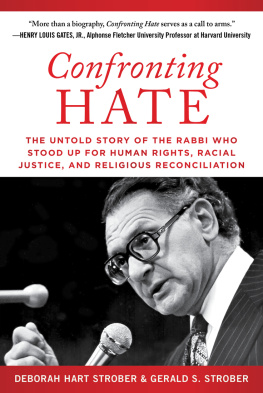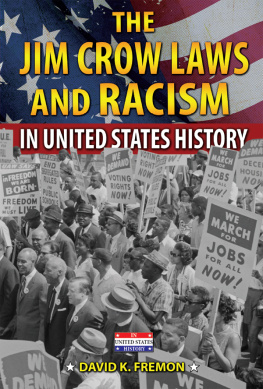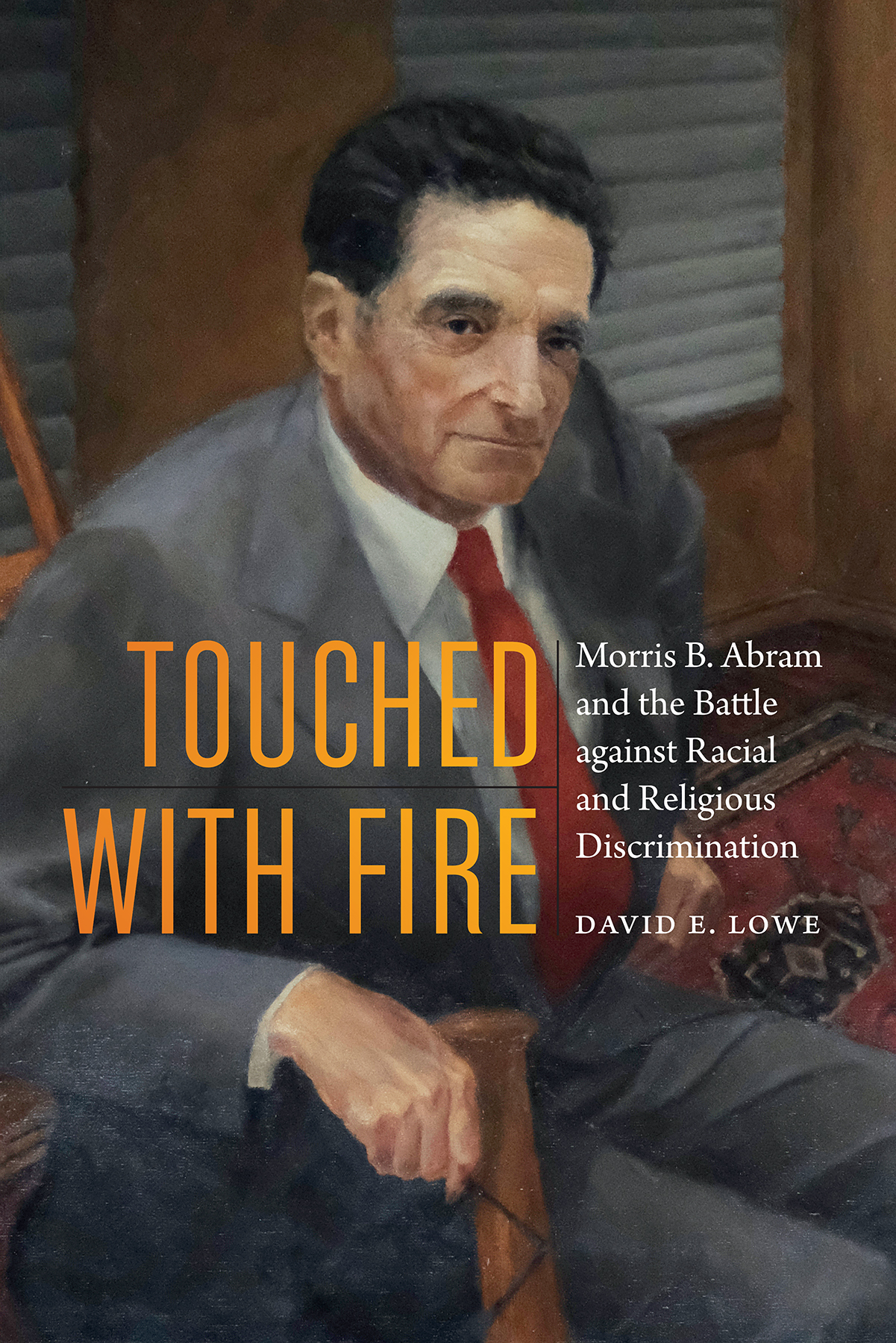
David Lowe brings Morris Abram to life, vividly describing Abrams powerful intellect and his passionate, effective pursuit of noble causes.
George Shultz, former U.S. secretary of state
A long overdue biography of a Southern white civil rights pioneer, American Jewish leader, Brandeis University president, U.S. ambassador, and human rights activist who ended up on the wrong side of the 1960s and whom history has unjustly forgotten. This is an instructive tale of liberalisms swerve and of roads not taken.
Jonathan D. Sarna, University Professor and Joseph H. and Belle R. Braun Professor of American Jewish History at Brandeis University
Morris Abram will always be remembered at the American Jewish Committee as a towering Jewish leader of the twentieth century. David Lowe compellingly traces his career as advocate extraordinaire for civil and human rights, Israel, and Soviet Jewry. Abrams model of effective leadership continues to be instructive, as this impressive volume highlights.
David Harris, CEO of American Jewish Committee
Touched with Fire
Morris B. Abram and the Battle against Racial and Religious Discrimination
David E. Lowe
Potomac Books
An imprint of the University of Nebraska Press
2019 by David E. Lowe
Cover designed by University of Nebraska Press; cover image is from the interior.
Author photo courtesy of the author.
All rights reserved. Potomac Books is an imprint of the University of Nebraska Press.
Library of Congress Cataloging-in-Publication Data
Names: Lowe, David E., author.
Title: Touched with fire: Morris B. Abram and the battle against racial and religious discrimination / David E. Lowe.
Description: Lincoln: Potomac Books is an imprint of the University of Nebraska Press [2019]. | Includes bibliographical references and index.
Identifiers: LCCN 2019015598
ISBN 9781640120969 (hardback)
ISBN 9781640122734 (epub)
ISBN 9781640122741 (mobi)
ISBN 9781640122758 (pdf)
Subjects: LCSH : Abram, Morris B. | LawyersUnited StatesBiography. | Civil rightsUnited StatesHistory. | BISAC : Biography & Autobiography / Lawyers & Judges. | Social Science / Discrimination & Race Relations.
Classification: LCC KF 373. A 27 L 69 2019 | DDC 340.092 [B]dc23
LC record available at https://lccn.loc.gov/2019015598
The publisher does not have any control over and does not assume any responsibility for author or third-party websites or their content.
To Mom and Dad, with admiration and affection
Through our great good fortune, in our youth our hearts were touched with fire. It was given to us to learn at the outset that life is a profound and passionate thing.
Oliver Wendell Holmes Jr.
Contents
To get to Yarmouth Port, Massachusetts, you take the exit to Route 6 A and drive the winding road toward Dennis. After passing the Cape Cod Center for the Arts and the Bass River Rod and Gun Club, along with multiple cape codstyle houses, garden nurseries, and art galleries, you are reminded that you are in the heart of New England by streets named Oxford and Canterbury, Longfellow and Walden Way.
When you reach the Elegant Inn at Cape Cod you make an awkward left turn onto Summer Street, and just down the road you take the third entrance into the Woodside Cemetery. Its not long before the names on the stones begin to sound less like the WASP ish ones attached to those buried in the front of the cemetery and more like those who arrived on the Cape many generations later: Vogel, Ridman, Kaufman, and Epstein.
When you come to the simple dark stone covering his grave just off the narrow road, you realize that the person buried here was no ordinary summertime resident, but rather someone who lived throughand helped shapea historic period of American history. The stone reads:
Morris Berthold Abram
June 19, 1918March 16, 2000
He established one man, one vote
as a principle of American law
First time authors are more dependent than others on the kindness of strangers, not to mention friends and acquaintances.
My first debt is to Hillel Neuer, the talented executive director of UN Watch, who proposed that I put together a slideshow about its founding chairman for the organizations website. While working on this assignment at Emory University in the early part of 2017, I realized that my subjects rich life deserved fuller treatment.
Had it not been for the encouragement I received at the outset from a valued friend, the author David Evanier, the project would probably not have been undertaken. Along the way I have received support from many others. Special thanks go to Joshua Abram, who gave generously of his time throughout the project to fill in critical details and help me gain a more complete understanding of the personal side of his father. Many others took a strong interest in the project and offered assistance in various ways. They include Morris Abrams daughter Ruth Abram and his widow Bruna Molina, as well as the following: Cecily Abram, Elliott Abrams, Steven Bayme, Jonathan Cohen, Michael Colson, Larry Diamond, Stuart Eizenstat, Deborah Forman, Carl Gershman, Hannah Gaywood, Robert Hicks, Penson Kaminsky, Joseph Lefkoff, Mark Levin, Lynn Levine, Richard Lowe, Eric Singer, Allen Tanenbaum, Stuart Weisberg, and Stephen Whitfield. I am also grateful to Alan Lowe, who read entire chapters and made helpful suggestions.
I am most fortunate that my longtime colleague Marc Plattner was willing to give the manuscript a careful reading and make useful recommendations. At the University of Nebraska Press, Ann Baker provided steady direction to the project and Abigail Stryker and Christina LaRose offered valuable editorial assistance.
My agent, Ronald Goldfarb, gave me a solid education in how to write a book proposal and made some helpful suggestions related to the books organization. I would also like to express appreciation to those who gave this project credibility by providing endorsements of my proposal: Abe Foxman, David Harris, Vernon Jordan, Bill Kristol, Alfred Moses, and Norman Podhoretz.
Let me take this opportunity to recognize the contributions of those unsung heroes whose expertise in locating relevant material not only lessened the burdens of research but also frequently made working in libraries such a pleasure: Kathy Shoemaker and her excellent staff at the Rose Archives at Emory University; Tim Myers and Sarah Braun at the Democracy Resource Center of the National Endowment for Democracy; Chloe Morse-Harding at the Goldfarb Library at Brandeis University; Charlotte Bonelli and Desiree Guillermo at the American Jewish Committee Archives; and the staffs of the Georgia Historical Society and the Dorot Jewish Division of the New York Public Library.
The following gave generously of their time to sit for personal interviews, providing indispensable insights about the Morris Abram they knew: Cecily Abram, Joshua Abram, Ruth Abram, Miles Alexander, Shulamit Bahat, Steven Bayme, Eric Block, Janice Rothschild Blumberg, Marshall Breger, Linda Chavez, Jacob Cohen, Jonathan Cohen, Michael Colson, Alan Dershowitz, Robert Destro, Gordon Fellman, Hamilton Fish, Deborah Forman, Abraham Foxman, Felice Gaer, Hannah Gaywood, Max Gitter, Jerry Goodman, Max Green, David Harris, Robert Hicks, Malcolm Hoenlein, Jeh Johnson, Vernon Jordan, Penson Kaminsky, Morton Keller, Billy Keyserling, Joseph Lefkoff, Mark Levin, Elliott Levitas, John Lewis, Seth Lipsky, Ted Maloof, Bruna Molina, Alfred Moses, Lamar Perlis, Anne Patterson, Norman Podhoretz, Bruce Ramer, Robert Rifkind, Sidney Rosdeitcher, Richard Schifter, George Shultz, David Schwarz, Eric Singer, Stephen Spitz, David Squire, Kenneth Sweder, Mark Talisman, Herbert Teitelbaum, Jonathan Tepperman, Eric Yoffie, and Andrew Young.
Next page
